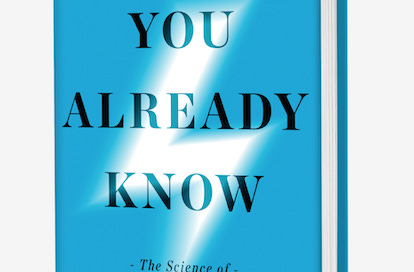A little while back, I invited you to ask me anything about intuition, gut feel, and the beautifully complex world of decision-making. Your questions were thoughtful, practical, and full of insight. Below are a few that stood out, along with my reflections.
Q: How can we overcome analysis paralysis while still ensuring thoughtful, unrushed decision-making?
A: Analysis paralysis often stems from chasing perfection. But breakthroughs rarely come from overthinking. Instead, they result from clarity and committed action. I’ve found that setting practical constraints or deadlines and aiming for “good enough” rather than perfect often nudges us forward in a meaningful way. Clarity, not perfection, will always guide you best.
Q: How do you effectively respond to intellectual skepticism about intuitive knowledge?
A: I describe intuition as compressed reasoning—a rapid, almost automatic synthesis of lived experience and internalized data. It’s not anti-intellectual; it’s what happens when your brain has seen enough patterns to connect the dots faster than conscious thought can catch up.
Q: Will AI help or hinder intuitive decision-making, and will it impact our critical thinking abilities?
A: AI helps us sift through massive amounts of data and sharpen our data-driven decisions, but it still misses the emotional and contextual nuance that makes us human. Intuition isn’t just about facts—it’s about sensing the subtleties, the gray areas that don’t show up on a spreadsheet or in an AI-generated report. It’s in those human complexities and ambiguities where our gut truly shines.
Q: How do deeply embedded cultural values affect our intuition, and how can we overcome cultural suppression of our gut feelings?
A: Mainstream culture trains us to filter (or even ignore) our intuition, creating a quiet tension between what we feel and what we’ve been taught to prioritize. Reconnecting with intuition starts by naming and exploring this tension, reclaiming your core values, and aligning them with bold, intuitive action. It’s about giving yourself permission to trust your gut, even when it feels risky, unconventional, or misunderstood.
Q: How do we distinguish true intuition from mere luck?
A: My best advice is to look closely at your reasoning process, not just the outcome. If your decision was well thought-out and felt genuinely grounded, that's intuition. Luck is characterized by randomness and impulsivity without underlying reflection. Intuition is thoughtful and embodied; luck is accidental. One is earned, the other is... well, chance.
Q: Is intuition simply the same as following your heart?
A: Not quite. Intuition mixes emotional awareness with cognitive insight, manifesting as internal certainty rather than pure emotional desire. It’s knowing deeply rather than merely yearning.
Q: How do we recognize when our gut intuition is accurate or incorrect?
A: Trust your intuition when it is clearly anchored in experience and self-awareness. But if it’s clouded by unchecked emotions, biases, or chaotic processes, pause and reflect. Like any skill, intuitive judgment improves with practice and calibration.
Q: Are there specific guidelines for applying intuitive insights effectively across different domains?
A: Intuition is most accurate in familiar settings. When crossing into unfamiliar domains, stay humble—and don’t fall prey to situational arrogance (something I discuss extensively in my book). Your patterns may not apply, so it’s crucial to regularly ask whether you’ve truly earned your intuition in a new context.
Q: How can mentors help mentees develop their intuitive abilities rather than just offering them the mentor’s own gut feel?
A: Mentors should guide mentees through recognizing and interpreting their own intuitive signals rather than simply handing them answers. It’s the difference between giving someone a meal and teaching them to cook. Intuition is deeply personal, and real growth comes from developing it yourself, not borrowing it from someone else.
Q: What are some of the biggest myths and unexpected truths about intuition?
A: A common myth is that intuition is irrational. Or always right. Intuition is actually fast, experience-based reasoning that is highly trainable through intentional reflection and recalibration. It’s both intellectual and emotional. It’s more like a wise inner advisor than a mystical voice from nowhere.
Q: How can women effectively use intuition in corporate environments that typically favor data-driven decision-making?
A: Women can frame intuition as "strategic pattern recognition shaped by experience." Using terms like “informed judgment”, “lived insight,” or “internalized data” helps intuition resonate in traditionally data-focused environments. Speak their language, trust your own.
Q: What are the neurobiological mechanisms underpinning intuitive insights, and how can these be strengthened?
A: Intuition engages the ventromedial prefrontal cortex and the default mode network, integrating implicit memory, emotional tagging, and pattern recognition. You can strengthen intuition through interoceptive awareness, reflective practice, and feedback-driven calibration.
Q: How does behavioral economics relate to intuition?
A: Behavioral economics shows that intuition is powerful, but not infallible—and that it can be biased or bounded. By recognizing these patterns, we can refine rather than reject our intuition, using it more strategically and consciously in our decision-making.
Thank you for your thoughtful questions—and for the curiosity, nuance, and wisdom behind them. Intuition is messy, powerful, and deeply human. When we learn to trust it, refine it, and act on it with confidence, it becomes one of our greatest strengths.
If these questions sparked something for you, there’s more to explore in my upcoming book, You Already Know: The Science of Mastering Your Intuition. It launches July 29 and you can pre-order it here.
Keep trusting your gut. You already know.
Until next time,
Laura




